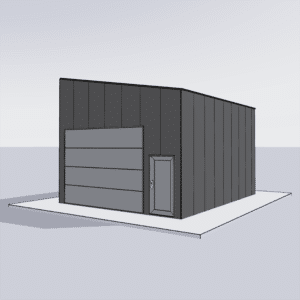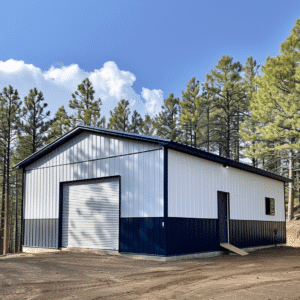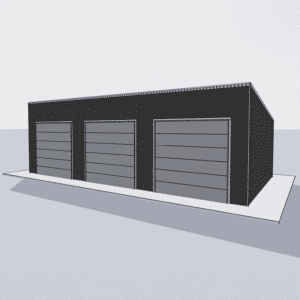Budgeting in the world of construction is like navigating a maze. Costs can appear from all directions, leaving even the most experienced project managers in a bind. However, amidst this complexity, there lies a beacon of simplicity – budget tracking tools. These tools serve as the compass, steering construction projects away from the rocky shores of financial overrun towards the calm seas of completion. With the rising demand for more efficient construction budgeting processes, the need for adaptable tools has escalated. But which tools stand out, and how do they streamline the construction budgeting process? Let’s delve into this essential topic.
What Are Budget Tracking Tools and Why Are They Important?
Imagine setting out on a long road trip without a map or GPS. Hopeless, right? This is what managing a construction project without budget tracking tools feels like. These tools are software applications designed specifically to oversee the financial aspects of a construction project. They help track expenses, forecast future costs, and inform decision-makers if the project is still aligned with its financial goals.
The importance of these tools is multi-faceted. Firstly, they offer real-time visibility into project finances. As construction projects often involve a multitude of costs (materials, labor, permits, etc.), having a tool that consolidates all this into one view is invaluable. Furthermore, budget tracking tools are crucial for forecasting. Accurate forecasts can prevent overruns and ensure resources are allocated efficiently.
Key Features to Look For in Budget Tracking Tools
When shopping around for the perfect budget tracking tool, it’s easy to get lost amidst flashy features and countless integrations. However, a few key features should stand out and guide the decision-making process:
– **Real-time Tracking and Updates**: The tool should provide current data regarding expenses and revenue, enabling proactive decision-making.
– **Forecasting Capabilities**: An ideal tool can project future spending and cash flow, catering both optimism and caution.
– **Integration with Other Tools**: Seamless integration with resources like project management and accounting software can streamline operations.
– **User-friendly Interface**: A tool that’s possible to use only by tech whizzes defeats the purpose.
To ensure consistent progress without financial setbacks, contractors must adopt tools that align with their project’s scope and timeline.

Top Budget Tracking Tools That Revolutionize Construction Budgeting
These tools stand at the forefront of modern construction management, thanks to their advanced features that cater to varied project needs.
1. Procore
Procore is the Swiss Army knife of budget tracking tools. It streamlines project documentation, financial reporting, and cost analysis. For projects like prefab garage kits Ontario based projects, Procore ensures there is balance and order amid potentially chaotic financial affairs.
2. Buildertrend
Tailored for residential construction, Buildertrend boasts a user-friendly design, simplifying financial and project management. It offers comprehensive bid, estimate, and proposal features alongside budget tracking. Its integration abilities with cost estimation methods are second to none, making it an invaluable asset to any project manager.
3. Viewpoint Vista
An aptly named tool, Viewpoint Vista provides panoramic insights into every facet of a construction project’s budget. It supports all facets of accounting, from job costing to payroll, ensuring every penny is accounted for. Vista’s cloud capabilities are a testament to ongoing digital transformations in the construction industry.
Navigating the Complexity of Budget Tracking with Expert Guidance
As the adage goes, failing to plan is planning to fail. Even the best budget tracking tools require thorough planning and expert guidance. BuildForce Canada – Construction Budget Tracking Tools offers detailed guides and methodologies, making it a resource worth exploring. These tools not only improve project cost accuracy but also enhance competitive advantage by ensuring projects stay within financial limits.
The Role of Budget Tracking in Prefabricated Construction
Traditionally labeled as niche, prefabricated construction is now capturing mainstream attention. It offers numerous benefits, from reduced waste to faster build times. However, the necessity for stringent budget control still prevails. Prefab projects often involve numerous phases: design, manufacturing, transportation, and assembly. A robust budget tracking tool can ensure that costs remain under control throughout each phase.

Adapting to the Future with Digital Solutions
The future of the construction industry is digital. To keep up with emerging trends and impress clients with seamless project execution, embracing advanced budget tracking tools is essential. Understanding large-scale project budgets is no longer an option but a necessity given today’s dynamic construction environments.
In an industry where the margins of error are slim, budget tracking tools are indispensable. They act as the backbone ensuring that projects evolve and conclude without financial hindrance.
Conclusion
In essence, budget tracking tools are more than mere digital sheets filled with numbers; they are strategic resources to optimize and safeguard project budgets against unforeseen circumstances. Whether planning a custom home or evaluating cost estimation methods for a commercial building, the right tools are vital.
Choosing the right budget tracking tool can feel like finding a needle in a haystack, but with clarity in your project’s unique needs, it’s definitely achievable. These tools, paired with proper training and effective deployment, will ensure that your construction projects remain financially healthy. After all, who doesn’t love a project completed on time and within budget?











